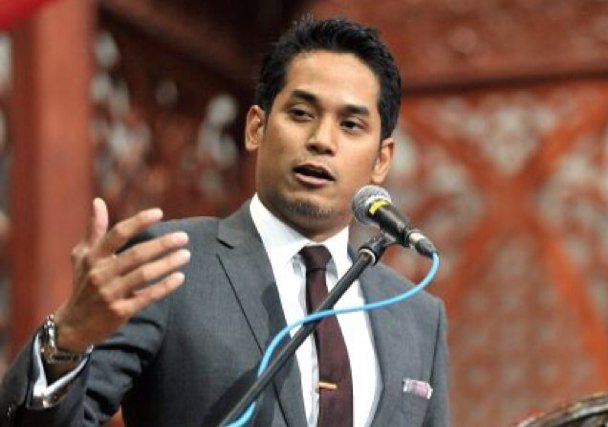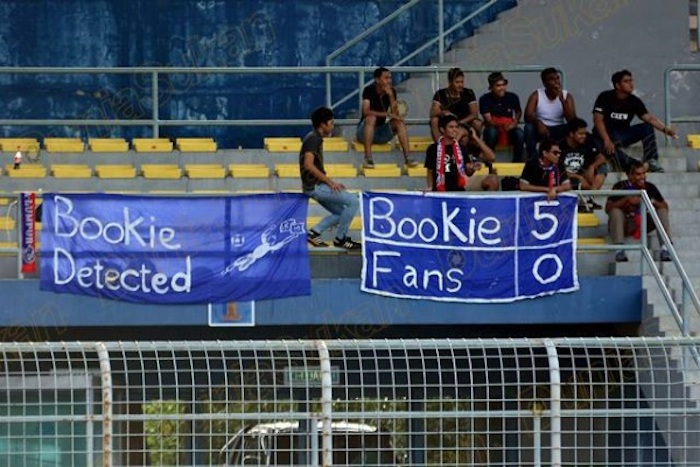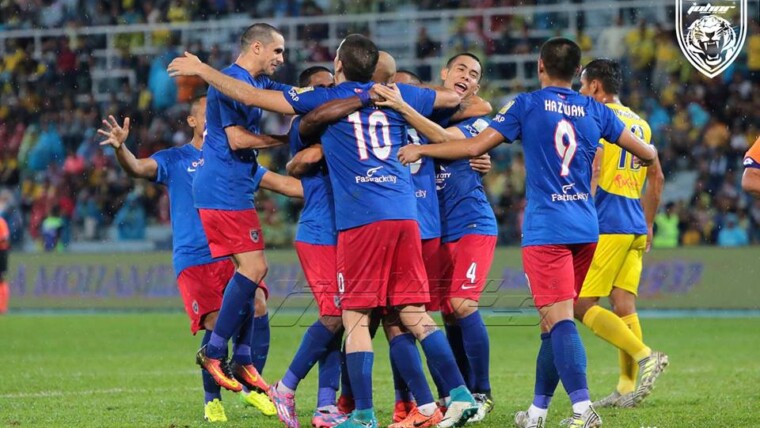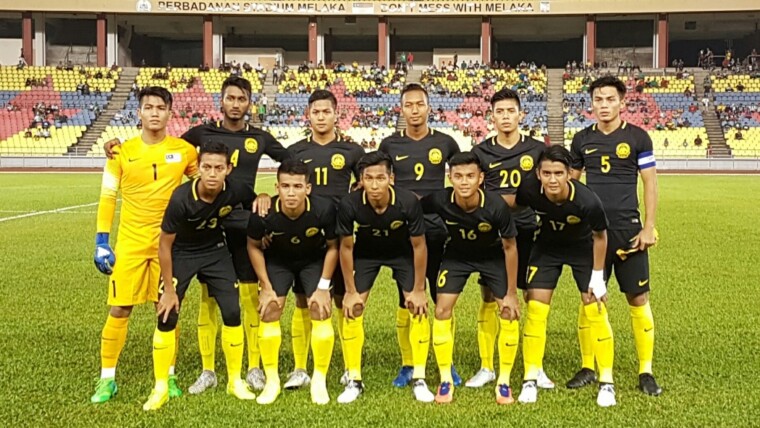It’s been a major concern for years now.
Match-fixing and Southeast Asia are relatively fond of one another – some of the world’s biggest betting syndicates are based in the region, particularly Singapore. Of course, Malaysia has its fair share of bookies as well, though the close proximity to Singapore probably amplifies the amount of influence bookies have in Malaysia, over the years.
Yesterday, FAM announced that it would be lifting bans on 84 players that were guilty of match-fixing during the scandal that rocked Malaysian football in 1994. After 22 years on the sidelines, all of them are now free to participate and engage in football-related activities.

It’s fantastic news for the 84 players involved – second chances are always reasons to celebrate. It’s a positive thing really, to see FAM moving away from the notion of being unforgiving. But as Malay Mail’s Haresh Deol pointed out in his blog yesterday, there are doubts over whether this is the smartest thing to do, given that match-fixing is still prevalent within the country.
MALAYSIAN CONTEXT
Let’s not kid ourselves. Johor DT’s success on the international stage, does not provide an accurate and holistic image of what Malaysian football is like on the ground. On one end of the spectrum, we have JDT but on the other, we have Kelantan, Perlis, ATM FA and a host of other teams.
The scale of the downfall is enormous and if you have financial issues, then your players become vulnerable to match-fixers. Ethics, is of course something we’d like to hammer into the souls of Malaysian footballers. But on the grand scale of thing, when the comparison becomes about your ability to put food on the table and pay bills at the end of the month, your moral compass would gravitate towards accepting match-fixing.

PFAM has been doing a fantastic job in educating players about the rights and what they should stay away from. But when desperation goes to a critical level, accepting a one-time payment from bookies wouldn’t seem like bad thing, in their heads. Perhaps the senior players are a lot more matured. But what about President Cup players and youth players, who rarely have enough recognition to be able to mobilize support from fans, when their club delays payment or doesn’t fulfill contractual obligations?
GROWING MARKET
The situation has evolved over the last 22 years. Match-fixing is now longer explicit like it used to be back in 1994 – technological advancement has allowed syndicates to remain underground and operate substantially, without getting caught.
The MSL is also an interesting option for bookies, because of its unpredictability and volatility. PKNS, a second tier-team, is currently in the FA Cup final. Penang, who have been absolutely shambolic for large portions of this season, were absolutely incredible in their 0-1 defeat against Johor DT last week. Perak, who played without Shahrul Saad, Nurridzuan Hassan and Vokhid Shodiev, sealed a 3-2 win over league leaders Felda United, a few weeks ago.

Johor DT’s success on the international stage also means that attention towards the MSL is now bigger than ever. Where there is demand, there’ll inevitable be supply. And if FAM don’t take active steps to protect the league and players, the MSL will continue to suffer as a by-product of that particular ‘supply-demand’ process. Not going to name any here, but it didn’t take me long to discover five websites offering betting odds on Malaysian football. Betting in itself isn’t a problem. But it becomes a problem, when bookies are given the opportunity to exploit a vulnerable market, without being held accountable.
PRECEDENCE?
Now yes, majority of these individuals have probably changed for the good, even if we’ll never know that. But I think it’s fair to assume most of them have learnt their lesson. That said, it’s not entirely impossible that a few of them could still be dragged back into match-fixing, given the environment is a lot more conducive for match-fixers, these days.
But even if that doesn’t happen, pardoning them sends out the wrong message. As Haresh also pointed out, Youth and Sports minister Khairy Jamaluddin recently revealed that match-fixing is still a major issue within the local football scene and that a joint-committee made up of individuals from FAM, the Malaysian Anti-Corruption Commission (MACC) as well as the Royal Malaysian Police (PDRM) has been established to deal with it. “We have taken serious action to overcome match-fixing and despite not being able to eradicate it, there is positive development,” he was quoted as saying by Astro Awani.

But how serious are we, when we’re willing to allow match-fixers back into a sport, that they once ruined completely. How serious are we, when we’re open to having these individuals assimilated into an environment that’s more conducive than ever, for match-fixing to take place.
In a recent interview, Abbas Saad revealed his frustration at being forced to bear the brunt of false accusations, when ‘dirtier individuals are still out there living their lives normally’. This decision, if anything, trivializes the sufferings of individuals who were falsely accused of match-fixing in the past.
Second chances are always welcomed. But this isn’t a second chance. FAM did not take away their right to live, raise a family, start businesses or just to live a comfortable life. All FAM did, was prevent them from being a part of a sport that they destroyed in the past. On a balance of probabilities, the net benefit of pardoning these individuals is not worth it, considering the floodgates of harms and consequences, that have just been opened, as a result of FAM’s decision.
Other posts by Keeshaanan Sundaresan







